Helping us set the right priorities for the conservation of Europe’s vultures and making sound evidence-based decisions are 14 conservation experts that make up our Advisory Board. Specialists in many aspects of vulture conservation and expert in the natural history of the different European vulture species, this board of volunteers provide vital support to our work.
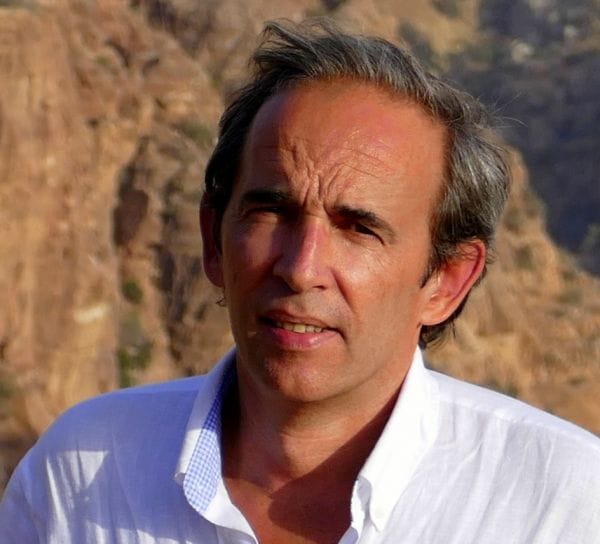
ÁLVARO CAMINA
More than 30 years’ experience with carrion eating birds in Europe and Africa. Chairman of the Mediterranean Griffon Vulture Working Group (EGVWG) since 2005 and member of the Raptor Research Foundation since 2000. He works in the ecology of vultures, mainly the Egyptian, Griffon, Cinereous and Cape vultures; also covering conservation and political issues, as the regulations of the Bovine Spongiform Encephalopathy (BSE) in Europe (2000-2008). International correspondent of the Vulture News Journal since 2000 formerly Vulture Study Group (EWT) publication and now IUCN Vulture Specialists Group. He has participated in more than 50 vulture conferences worldwide. Member of the Vulture Advisory Groups of the Spanish Ministry for the Environment and Junta de Andalusia Local Governments. He also develops Environmental Projects mainly for Renewable Energy worldwide, but mainly in South Africa, the EU28: Spain, The Balkans (Bulgaria, Montenegro, Bosnia Herzegovina and Serbia) Middle East (Syria, Jordan and Israel), Africa, Asia (India) and Latin America. More than 10 years experience in Environmental Impact Assessment; undertaking all aspects of environmental consultancy ensuring that client`s projects are fully compliance with legal regulations and statutory requirements. Wind farm collision risk assessment, design implementation of mitigation and compensation.
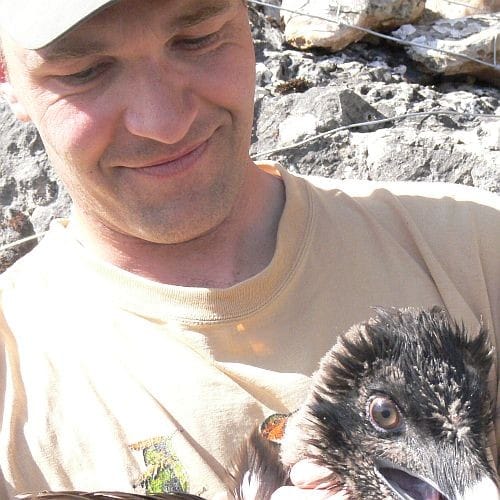
OLIVIER DURIEZ
Since 2010, he has a position of lecturer (chair of conservation biology of vertebrates) at the University of Montpellier – Centre for Evolutive and Fonctionnal Ecology (CEFE), France. His research interests are the impacts of individual behaviours (particularly foraging and movements) on population dynamics of birds, in the scope of conservation biology. His previous research experience involved fieldwork, labwork and modelling on various birds (seabirds, waders (woodcock, oystercatcher), grouse, geese and raptors). Besides a long-time personal interest in vultures, he really started to work with vultures in 2008, as a post-doc at the Museum National d’Histoire Naturelle, Paris (with François Sarrazin), about the study of social behaviours and their impact on the population dynamics of Griffon vultures. He is also consultant in the French National Action Plans for Cinereous vulture, Griffon vulture, Bonelli’s eagle and Lesser kestrel.

HANS FREY
Born 1944 in Vienna. He studied veterinary medicine at the University of Veterinary Medicine in Vienna. Hans worked as a research assistant and then in 1973 as a university assistant at the Department of Wildlife Science at the Institute of Parasitology and Zoology. Until 2010, he was a lecturer for Zoology and examiner and scientific officer at the Institute for Veterinary Parasitology and Zoology at the University of Veterinary Medicine in Vienna. In 1975, the breeding and rehabilitation centre for wild animals with a focus on birds of prey and owls, now “EULEN- UND GREIFVOGELSTATION Haringsee”. was established. In 1976, the Bearded Vulture husbandry in Haringsee started. Two years later in 1978, he officially expanded the Haringsee station as the main breeding centre for the Bearded Vulture as a project of the Frankfurt Zoological Society, now named "Richard Faust Bearded Vulture Breeding Center (RFZ)". He was commissioned with the technical administration of the international Bearded Vulture reintroduction project in the Alps, decided in 1978 in Morges, Switzerland. Until 1985, he developed an optimal release technique for the Bearded Vulture project, establishing an international breeding network for the Bearded Vulture. In 1985, the Bearded Vulture EEP was founded, and he was appointed as species coordinator and herd bookkeeper until 2017. Today, he is the Scientific Director of the Owls and Birds of Prey Center Haringsee and RFZ.
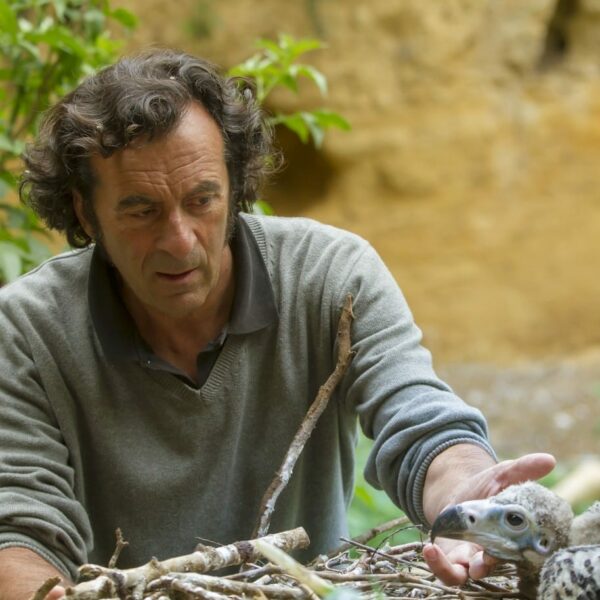
PIERRE GAY
Pierre Gay is the director of two zoological parks in France: BIOPARC Doué la Fontaine and Les Sables d’Olonne, two structures created by his father and where he has invested all his life long. He has devoted his enthusiasm to the evolution of mentalities and the behaviors towards his profession. Trying to find the right balance between animal welfare and visitors’pleasure and creating natural “mises en scènes” brought him to consider his zoo’animals as ambassadors of their wild cousins. His involvement for wild nature begun with the vultures, by rescuing in his zoo injured vultures and providing newborn birds for reintroduction programmes. This involvement is still ongoing with 20 other “Nature projects” dedicated to nature conservation through developing positive cohabitation between human and animals.

FULVIO GENERO
Born in 1954. Graduated in Agricultural Science. Since 1987, he has been freelancer in zoology conservation and wildlife management (as environmental consultant), with a particular interest in the biology, ecology and management of alpine birds and mammals. Fulvio Genero has been responsible, since 1988, for the technical and scientific aspects of the project for the conservation of the Griffon Vulture (Gyps fulvus) in the Italian Eastern Alps. Moreover, since 1986 he has been working within the international project for the reintroduction of the Bearded Vulture (Gypaetus barbatus) in the Alps, with a initial role of coordination for the Italian side. He was also involved in various feasibility studies and projects for the reintroduction of different species of vultures in Sardinia, Alps and Apennines.
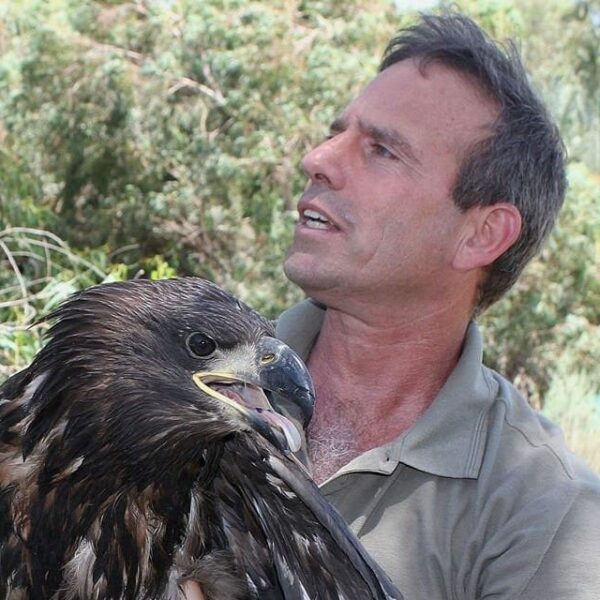
OHAD HATZOFE
A birdwatcher since childhood… Ohad studied Biology and Zoology and Ecology in the Hebrew University in Jerusalem and the Tel-Aviv Univ. In 1989 established for the Society for the Protection of Nature in Israel the Reintroduction Project to restore the raptors populations (Griffon & Egyptian vulture, Bonelli’s eagle, Lanner falcon and Lesser kestrel) in Mt Carmel based on captive breeding and long term monitoring, tagging and telemetry tracking. Later it became a regional project to restore these populations in the Mediterranean habitat in Israel. Since 1992 he is leading the reintroduction of White-tailed sea-eagles in Israel and breeding of the remaining Lappet-faced vultures in captivity. From 1996 the monitoring and management of vulnerable and endangered raptors’ population with the SPNI and Israeli Nature Reserves Authority (NPA) became part of his engagement. Since 2003 he is working at the Science Division of the NPA as the Avian Ecologist. Within his work he represents Israel in international conventions that relates to birds, working on the conservation of many species of birds and at the same time on the control of overpopulating species, invasive species and on legislation, law enforcement and more.
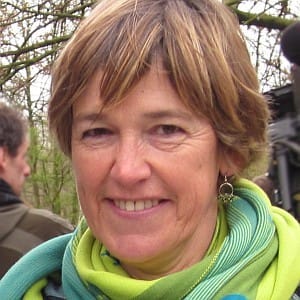
MARLENE HUYGHE
Born on 08/04/1958, in Antwerp, Belgium. Studied Zoology at Louvain University . Working since 1994 in Planckendael Animal Park as a curator and since 2010 also as bird curator in Antwerp zoo, which implies the management of the bird collection in the 2 zoos We recorded the first breeding success of European Black vultures in Planckendael in 1997 and since then my “vulture” fascination is growing constantly. One year later I was offered to take the management of the European breeding programme (EEP) for this species. Through this position I got involved in the fascinating work of BVCF, and was participating in the release of several zoo born chicks in France. In 2008, I was invited to become member of the VCF Board, being the link with the captive breeding network for one of the 4 species VCF is concentrating on.
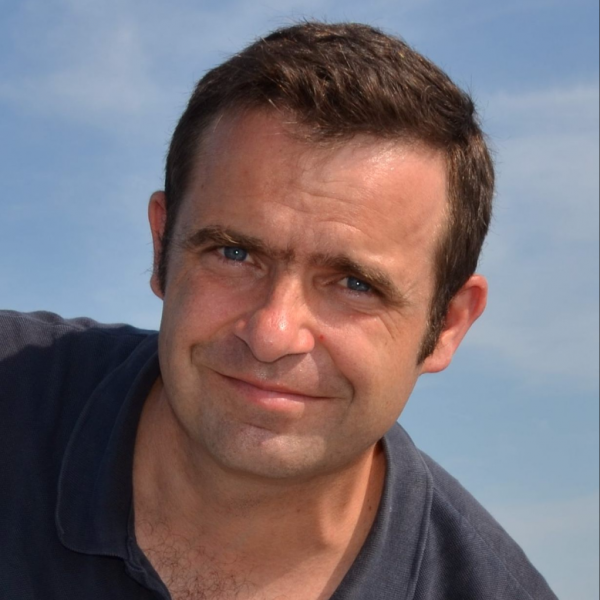
RAPHAËL NÉOUZE
Raphaël Néouze is the head of the vulture’s conservation and reintroduction programs in the region of Grands Causses in France. He leads the team of the local office of LPO (Birdlife France), which is running actions in favour of the four European vultures species. He is the coordinator of the French National Action Plan in favour of the Black vulture and has prepared, implemented and developed the Bearded vulture reintroduction program in the Massif-central. Originating in that region, he got passionate for birds and vultures in his childhood while the Griffon vulture was reintroduced there for the world’s first time! Raphaël studied biology and agriculture in Paris, in England, at the Royal Agricultural College, and in Ireland, at University College Dublin. Today, he works regularly with all the local, national and international stakeholders involved in the conservation of these species and their habitats: farmers, outdoor sports, scientists, hunters, parks, NGO’s, public administration, communities, locals… bringing their energies together.
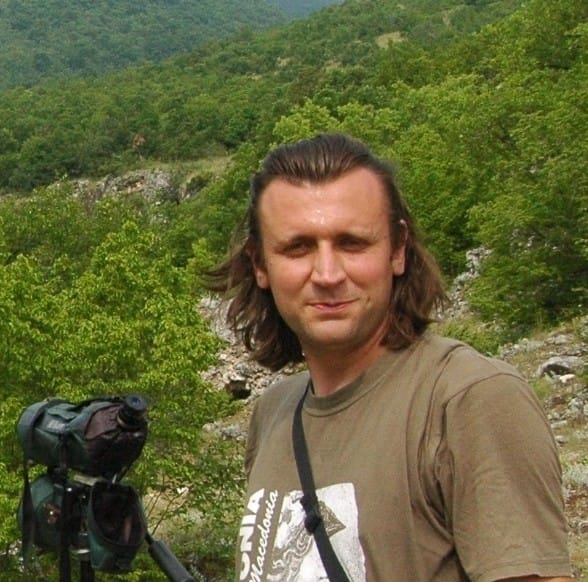
METODIJA VELEVSKI
Metodija Velevski was born in 1977. He studied biology at the University in Skopje, and following graduation, he worked for the Macedonian Ecological Society on the vulture conservation project in Macedonia. He did his PhD thesis in conservation biology of the Egyptian Vulture in Macedonia at the University in Belgrade. Besides the vulture conservation, he has experience in general ornithological and ecological studies. Since 2014 he is curator-ornithologist at the Macedonian Museum of Natural History, and since 2015 is a board member of the Macedonian Ecological Society.
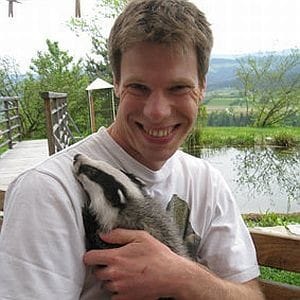
RICHARD ZINK
Born in Vienna, Austria, he studied Ecology and Zoology there. From 1998 he was glad having the opportunity to set up a monitoring system for the bearded vulture in the West of Austria based on voluntary observers. Starting in 1999 he established the trans-border (International) Bearded Vulture Monitoring in the Alps. Some years later the monitoring was shifted to an online data base which still serves as unique basis for data exchange within the bearded vulture reintroduction project (see www.gyp-monitoring.com). From the year 2008 he had the honor to become a member of the VCF (former FCBV) board. Besides his work with vultures, his interest covers conservation of other owl- and raptor species such as the reintroduction of the Ural owl in Austria (see www.habichtskauz.at) and the management of the Austrian Saker falcon subpopulation.
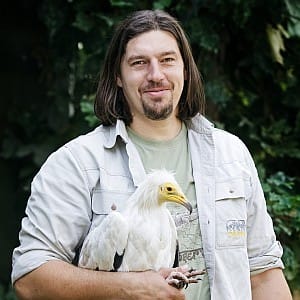
ANTONIN VAIDL
Born in 1975. After studies at the Veterinary High school he started to work at the Prague Zoo as a keeper in `Baby Station’. Over the next 7 years he gained experience hand-rearing many birds species including Cinereous Vultures, Bearded Vultures and Egyptian Vultures. From 2002 to 2007, he worked as deputy curator of birds at Prague Zoo and in 2007 he spent three months in the Philippines where he worked as a curator-consultant at Birds International Inc., the biggest bird farm worldwide. From 2008 to present, he worked as a curator of birds at Prague Zoo and in 2011 he was elected as the chairman of bird committee of Union Czech and Slovak Zoos. In 2011 he took over ESB for Neophron percnopterus, which was upgraded to EEP in 2012. He first attended an annual meeting of Foundation for the Conservation of the Bearded Vulture in 1995. He married his wife in 2008 and in October opened up a Veterinary Clinic `MADA’ specializing in birds. He has two children.

EVELYN TEWES
In memoriam
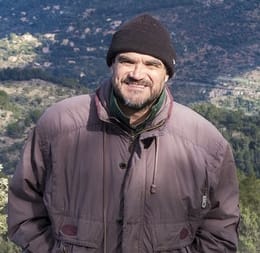
JUAN JOSÉ SÁNCHEZ ARTÉS
Juan José Sánchez Artés was a member of the Advisory Board when he died of a heart attack in November 2016. He was 54 years old, and spent half of his life fighting for vultures and for Mallorca´s biodiversity. He was the president of two foundations – Black Vulture Conservation Foundation (BVCF) and Fundació Vida Silvestre Mediterrània (FVSM), as well as presiding over the ICTIB (Initiatives per a la Custòdia del Territori a les Illes Balears). At the end of his life, Juanjo was very busy managing the Ariant (Pollença) estate for conservation purposes – a key property donated to the FVSM in 2012. Juanjo was also a member of the VCF advisory board. Juan José has spent much of his life fighting for the conservation of the black vulture in Mallorca, but he has also contributed much for vulture conservation projects in France (black vulture reintroduction project) and for the Balkan Vulture Action Plan. Long live Juan José! We will work hard so that your dreams of reconnecting the black vultures populations in Europe, from Spain to Turkey via the Balkans, become true.
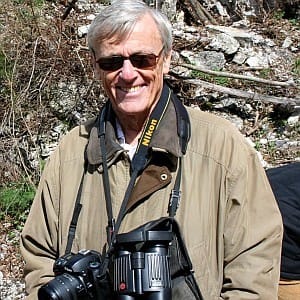
MICHEL TERRASSE
Born in 1938, Michel Terrasse was a chemist and wildlife filmmaker. Since the 1960s, he was responsible, along with his brother Jean-François Terrasse, for the "Fonds d’Intervention pour les Rapaces," now the Raptor Mission of the LPO (BirdLife France). Through various conservation actions, such as surveys of threatened nests, feeding, education, and captive breeding, vulture conservation became one of his most accomplished works. Notable achievements included the successful reintroductions of Griffon vultures in the Causses (southern Massif Central) after 1981 and in the Mediterranean Alps in 1995. The return of the Black vulture as a breeding species in France after 1992, the gradual comeback of the Egyptian vulture in most former breeding territories, and the conservation of the Bearded vulture in the Pyrenees, Corsica, and now in the Alps were among the main results of his 30 years of intensive conservation work. Michel Terrasse served as a board member of the LPO/BirdLife France, where he held the position of consultant administrator for the International and Overseas Mission. Since the 1990s, he had been a board member of the Foundation for the Conservation of the Bearded Vulture (FCBV) and the Black Vulture Conservation Foundation (BVCF). From 2008 to 2012, he served as the President of the Vulture Conservation Foundation (VCF), and then remained a member of the advisory board until he passed away.
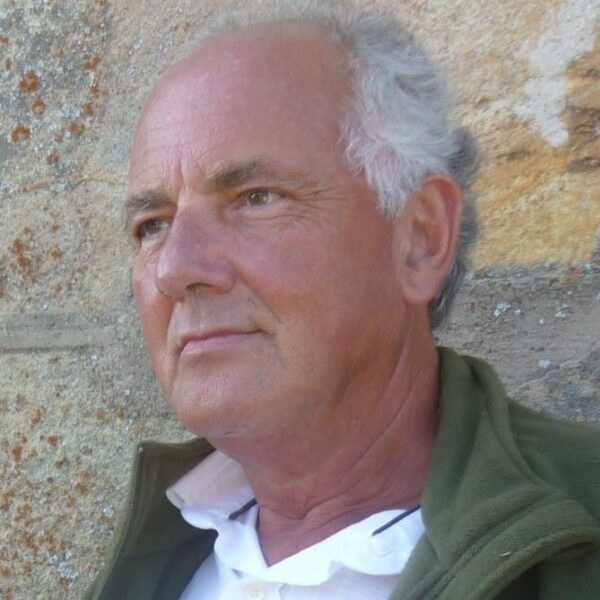
JESUS GARZÓN
Born in 1946, Jesus Garzón worked in nature conservation for more than 50 years, focusing primarily on threatened species in Spain, including the Bear, Wolf, Iberian Lynx, Imperial Eagle, Cinereous Vulture, Black Stork, Capercaillie, and Great Bustard. He took actions to prevent their decline. From 1972 to 1984, he led the IUCN/WWF International Project for the Conservation of Nature in Western Spain, culminating in 1979 with the creation of the current Monfragüe National Park. He served as the Director General for Environment in Extremadura from 1984 to 1987 and co-founded several conservation organizations, such as ADENEX (Extremadura), ARCA (Cantabria), the Black Vulture Conservation Foundation (BVCF), or the Spanish section of the European Nature Heritage Fund (EURONATUR). Since 1992, he chaired the Association Concejo de la Mesta, striving to recover traditional transhumant livestock walking throughout Spain to ensure the connectivity and sustainable conservation of ecosystems, allowing the adaptation and resilience of biodiversity to climate change.